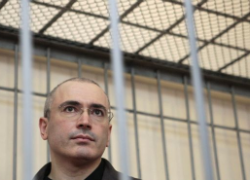Famed Russian political prisoner, Mikhail Khodorkovsky, was released from prison last week in a surprise pardon by President Vladimir Putin. Khodorkovsky, was an oil tycoon before incarceration as well as the richest man in Russia at one time. Through a series of deals negotiated with the government, Khodorkovsky bought up many state oil companies following the collapse of the communist government in the early nineties. Officially charged with tax evasion – many believed that he was imprisoned for his vocal opposition to Putin as well as using his immense wealth to back Putin’s opposition.

According to the Kremlin, after ten years Mikhail Khodorkovsky requested a pardon because of humanitarian reasons. Although attorneys for Khodorkovsky had appealed many times, this was the first pardon requested. Furthermore, the request apparently came directly from Khodorkovsky as initial reports stated his lawyers knew nothing about it. Some surmise it was in response to rumors that Russian prosecutors were readying a third case against him, in spite of his scheduled release date this upcoming August.
This move from Putin has left many wondering what is to become of two other high profile cases – that of two members in the political rock group “Pussy Riot” and thirty Greenpeace activists. Both cases have drawn tremendous publicity worldwide. The incarcerated rock band members received two-year sentences for performing a song in a Russian Cathedral. The song was received as being both raunchy as well as critical of Putin. The Greenpeace activists are awaiting trial on their cases for protesting aboard an oil rig.
President Putin recently introduced legislation that will likely answer the question of their fates. The legislation, often referred to as an “Amnesty Bill,” is being rushed through legislation. Once signed, all of the cases in question will qualify for pardons – something most in and out of Russia believe will occur. Given the current temperature of media inside the state, these pardons are no longer a surprise. Weeks and months ago, however, Putin had promised that nothing of the sort would occur, stating, “This is a serious thing for us. And we do not plan to soften (our stance), we will only be toughening it.”
Two things have some questioning the sincerity of the Kremlin’s generosity. First is the proximity of these moves to the upcoming Olympics in Sochi, Russia. With the spotlight on Russia’s human right’s record, the timing of these releases is peculiar to say the least. Additionally, the releases are, so far, small in scale. The prison doors are far from being flung open. Secondly, is the way that the releases were carried out. The releases – both past and impending – are centered around the executive rather than the judiciary. That raises the question of whether these maneuvers are any actual departure from Putin’s measured democracy whatsoever.
Tom Dunlop is a 3L at Denver University and a Staff Editor for the Denver Journal of International Law and Policy

